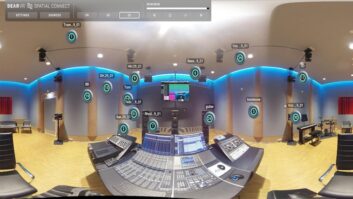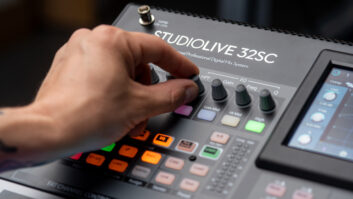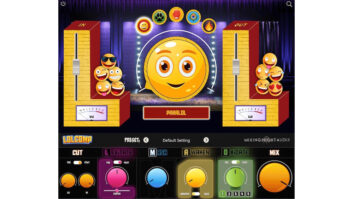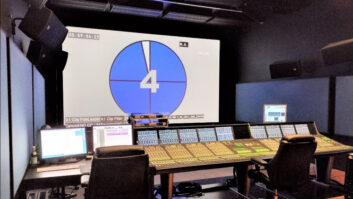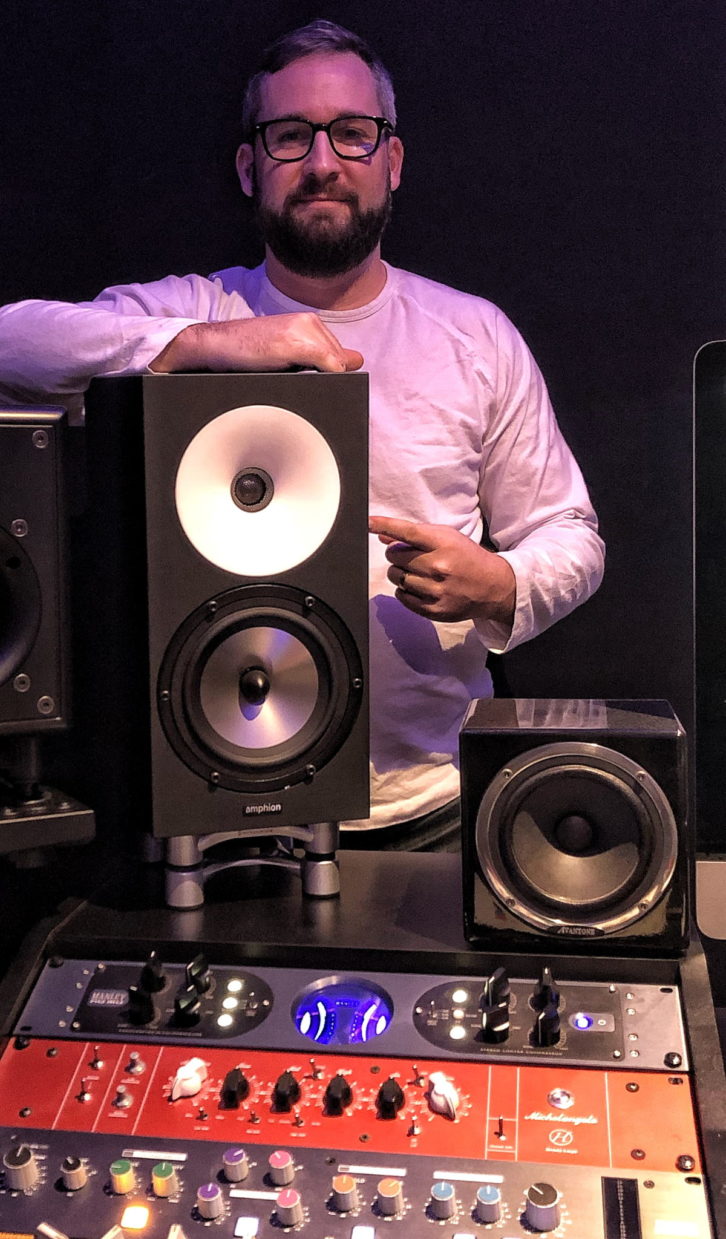
“It’s a really fascinating time for music right now because you see these maximalist production techniques matched with more intimate, lo-fi sounds within the same tracks,” says mix engineer Mitch McCarthy. “The key to mixing music like that is to focus on bringing the vocals forward and emphasizing the dynamics in the track. Those are the elements that connect with the listener, and you really need to be able to hear all of that to make it work.”
For more than a decade, McCarthy has created crucial mixes for pop artists like Conan Gray, Bebe Rexha, Ben Platt and Melanie Martinez. His recent work on Olivia Rodrigo’s Grammy-nominated album Sour includes its inescapable lead single, “drivers license,” which received three 2022 Grammy nominations.
How-To: Apple Spatial Audio Explained
McCarthy began using Amphion One18 speakers when he realized how closely they matched his priorities as a mix engineer. “I connected with Amphion because of how true to the source they are—you know exactly what you are hearing and can see what the bigger picture is right away,” he says. “They really shine when it comes to vocals and micro-dynamics. They’ve allowed me to work more quickly and trust the decisions I’m making, meaning that I’m much more confident in the mixes I’m sending back to artists and producers.”
With many engineers working remotely these days, McCarthy says that mix translation is more important than ever. The diversity of listening devices from producer to artist to fan can be challenging, but ultimately offer a test of the effectiveness of the song itself.
“In a great pop song, you want to feel the emotional without technically hearing the sonic changes I’m making; those are the kind of details that need to translate the most,” he says. “Mixing on Amphion, I’ve been able to make those decisions knowing that my mixes translate immediately, regardless of the listening device.”

